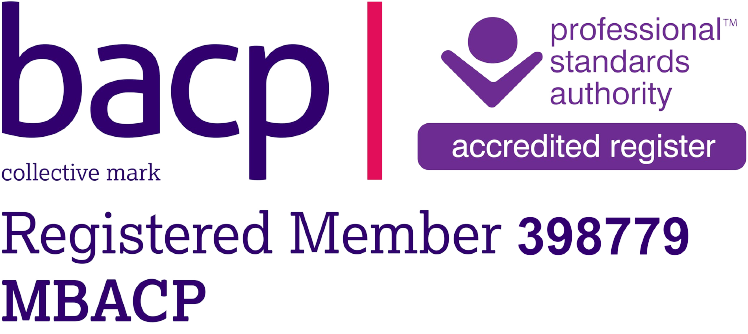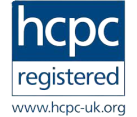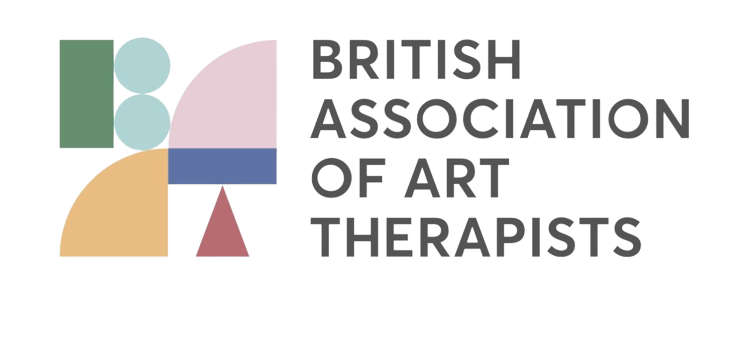Unlock Therapy
“Courage gives us a voice, and compassion gives us an ear. Without both, there is no opportunity for empathy and connection”
Brene Brown
Welcome!
I’m Claire, an experienced psychotherapist offering personalised therapy to adults, young people, and families.
Whether you are feeling overwhelmed, facing specific difficulties, or simply seeking greater understanding or change, sessions offer space to explore current or past experiences, develop insight, and consider new ways forward.
At Unlock Therapy, I work in partnership with you, adapting my therapeutic approach to suit each person’s needs, pace, and circumstances. Therapy may be short-term or longer-term, offered in person or online, and alongside talking therapy I offer the option of working creatively when this feels helpful — particularly when words alone feel limiting.
Face-to-face sessions take place in a peaceful, countryside-based therapy room near Saffron Walden, close to Audley End station, with free parking available.
How Therapy Can Help
You may suffer from:
- Anxiety, overwhelm, or panic attacks
- Grief, bereavement, or unresolved loss
- Feelings of disconnection
- Depressive episodes and low moods
- Difficulty regulating intense emotions
- Lack of confidence and low self-esteem
- Trauma, PTSD, or major life changes
- Difficulties in relationships or family life
- Feeling stuck or held back
- Addiction and self-sabotaging behaviours
- Issues related to neurodivergence
- Intrusive thoughts
- Anger management
Perhaps you'd like to:
- Feel seen, heard and understood
- Gently process grief and honour your loss
- Find peace and develop a sense of calm
- Restore hope and find meaning
- Build emotional awareness and resilience
- Come to know and accept yourself
- Release yourself from inherited trauma
- Create balanced, fulfilling relationships
- Work through painful past moments
- Develop nourishing patterns of behaviour
- Feel affirmed and embrace your strengths
- Develop coping strategies and life skills
- Reconnect with your creativity
Art therapy
Art therapy offers a unique creative process where art-making and psychotherapy combine to support personal growth, awareness, and healing. It provides a tangible, immediate way to express feelings and emotions, especially when words fall short. No prior artistic experience is needed—curiosity and openness are all that’s required.
Art therapy taps into a more playful and curious part of ourselves, encouraging creativity and exploration. Its aim is to ease distress, increase awareness, resolve conflicts, and support healing, particularly in response to trauma.
Sessions usually combine talking and artmaking, tailored to what works best for you. If you choose this approach, I will encourage you to explore and experiment with art materials at your own pace, while supporting you in reflecting on the process.
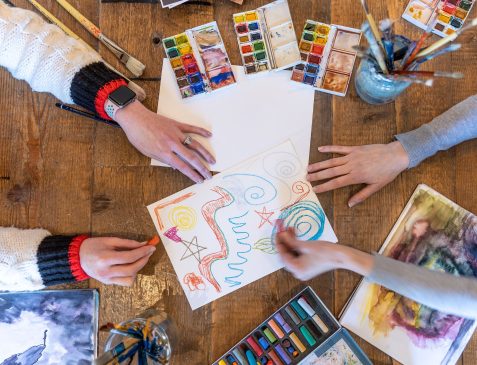
Express
Artmaking can take many forms—painting, drawing, clay work, collages, and even working with objects like stones, shells, or postcards. You may create independently, or we can explore the process together. Feel free to bring any found objects or artwork to your sessions.
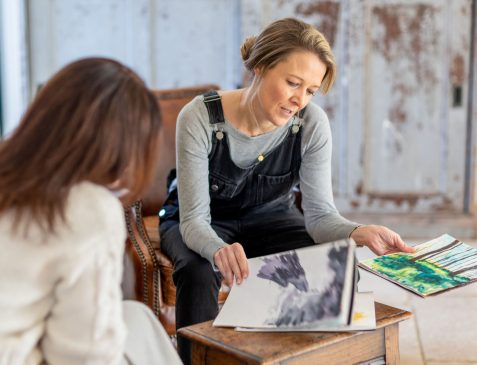
Understand
Creating art can bring clarity to complex emotions and experiences, helping you uncover insights that are unconsciously remembered. Together, we’ll explore the emotions and meanings behind your work, revealing fresh perspectives and a deeper understanding of yourself.

Feel better
Art can be a transformative tool for self-expression, helping you to explore and accept all parts of yourself. As you engage with your inner world through creativity, you’ll cultivate greater self-compassion and openness, empowering you to access your potential for change and growth.
About me
I am an integrative counsellor and arts psychotherapist with a background in education. I trained at the Institute for Arts and Therapy in Education (IATE) and gained an MA (Distinction) in Integrative Arts Psychotherapy.
Alongside my private practice, I have worked in specialist NHS adult mental health services and community settings, with individuals and groups. My experience includes supporting people with complex and enduring mental health difficulties, as well as those seeking space for reflection and change. My work is trauma-informed and grounded in an understanding of how early experiences, relationships, and life events can shape the way we feel, think, and relate to ourselves and others.
I am fully insured, hold an enhanced DBS check, and am accredited by the Health and Care Professions Council (HCPC) and UKCP. I work in line with their professional and ethical standards, have regular supervision and undertake ongoing training to support safe, reflective practice.
Before training as a psychotherapist, I worked as a primary school teacher and have had a lifelong involvement in the arts, both of which continue to inform my creative and relational approach.
I have a special interest in ASD, ADHD and neurodiversity.
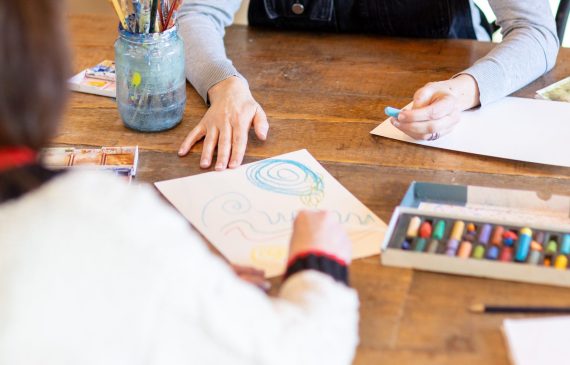
Ready to take the next step?
For a free, initial, 15-minute phone call please contact me.
First session:
Our first session is an opportunity to explore what brings you to therapy and your hopes for the process. This initial meeting also allows us to assess whether my approach feels right for you and address any questions you have. If we decide to move forward, we’ll meet weekly for a 50-minute session, either in person or online.
On-going sessions:
Everyone’s needs are different, so the number of sessions will depend on your circumstances. I offer both time-limited and longer-term psychotherapy.
We’ll check in after six weeks to ensure you're feeling understood and supported in your process. I encourage feedback throughout, so we can make sure you’re getting the most from our sessions.
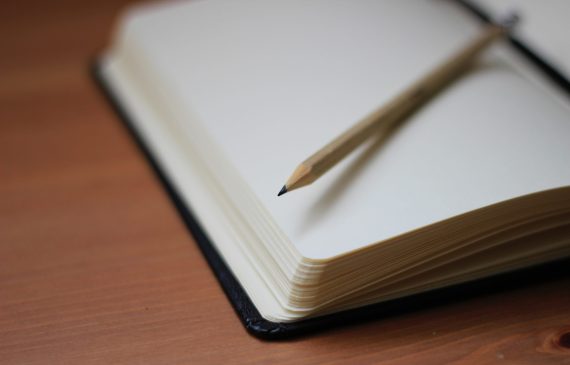
Fees & availability
I see clients in person and on zoom for regular weekday sessions and on Saturday mornings.
My fee is £80 for a standard 50-minute session.
Please be aware that all of my low-cost spaces are currently full.
Payment is due before each session via bank transfer. Please note that if you want to cancel an appointment, I require at least 24 hours' notice, if not you will still need to pay for any sessions missed.
Get in touch
If you would like any more information about the services I offer, please complete this contact form and I will respond as soon as possible, usually within 24 hours.
You can also message me on 07815 780 331 if you would prefer to leave a message or speak to me first.
I look forward to hearing from you.
Some frequently asked questions
Psychotherapy has been shown to help many people recover and move forward from mental health symptoms and is recognised as beneficial by the NHS.
Benefits of talk therapies - NHS (www.nhs.uk)
Therapy is an investment in yourself. It can be used to help solve particular problems or can be a process of personal development within the therapeutic relationship. Either way, it is a positive step towards understanding your problems, enabling you to make conscious changes in your life and create the best future for yourself.
Counselling and psychotherapy are terms that are often used interchangeably. However, counselling usually refers to shorter-term more focused work, exploring and gaining insight into a particular issue, while psychotherapy tends to be a longer-term process and is often indicated if your difficulties are more deeply rooted.
Psychodynamic psychotherapy aims to increase your awareness of your ‘inner world’ and the influence it holds over your relationships, both from the past and the present. As with other therapies, the context for healing is an empathic therapeutic relationship, developed over time through profound conversation. Working with the arts in psychotherapy can help deepen that conversation, as it combines psychotherapeutic technique with creative processes using arts materials or actions to help in how you communicate your feelings, thoughts and emotions.
The arts work with a part of us which can be under-used or forgotten as we grow into adulthood. Art therapy provides the opportunity for reconnecting with the imaginative aspects of your personality, allowing in the more playful, spontaneous, open and experimental part of self. This can be helpful if you tend to overthink things, as art-making can get you ‘out of your head’, opening doors to new ways of expressing things and broadening your scope for healthy change.
Furthermore, making art in a therapeutic setting often allows us to get beneath the surface and explore what is really happening in our lives, accessing deeper thoughts and feelings that may lie beyond conscious awareness. The art can hold many meanings at once and can create a safe distance between us and our feelings, which are now outside of us safely contained in an image, poem, or other creative form. This helps to calm the mind and facilitates healing when particular issues or feelings are too difficult to talk about.
This depends very much on the difficulties you are bringing, how you work and what you are hoping to achieve. In our initial session, we can discuss your needs and situation in detail and work together to decide whether short or longer-term therapy would be most appropriate. Together we will review your work regularly to get a sense of how it is going and how long you may continue. You have the right to stop or take a break from therapy at any time. In general, it is most beneficial for this to be mutually decided and I encourage you to discuss this with me so that our work can be reviewed and thought about together before ending.
All sessions are confidential. The only exception to confidentiality is if I believe that serious harm may occur to yourself or others. Should this situation occur, I would then make every effort to seek your consent to break the agreement about confidentiality. However, with or without your agreement, I am ethically and professionally obliged in these circumstances to contact appropriate professionals and disclose relevant information.
©Unlock Therapy
powered by WebHealer
